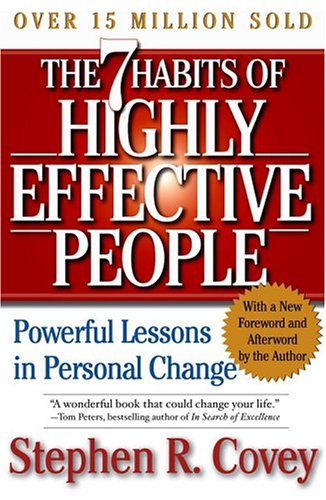Interview with Charlie O’Rourke, Financial Services Leader, former SVP of First Data and currently Chief Technology Strategist with the Fotec Group: “The Pros and Cons of Outsourcing”
Recent industry surveys reveal that more businesses are using outsourced services as a means of cost-cutting and potentially a strategic business productivity tool. In these studies, executives said they believe outsourcing can provide many benefits, including access to a valuable talent pool where a company may lack expertise.
We asked Charlie O’Rourke, one of the financial industry’s most respected and successful veterans, to give his insights around the growing outsourcing trend and provide some tips on how a company can be successful leveraging outsourced services while avoiding potential pitfalls.
Attain Marketing: We’ve seen more companies looking to outsourced services as a way of achieving their business objectives. In your opinion, is this a good trend for businesses and what benefits can they gain by outsourcing?
O’Rourke: Yes, I believe those companies that prepare themselves for outsourcing can benefit immensely as part of an overall business strategy.
First, let me clarify what I mean for our purposes here today. To me “outsourcing” is a practice used by companies of contracting out some of their business functions to an external provider. For the purpose of this discussion, I am referring to outsourcing as the utilization of hired resources inside U.S. borders.
While I agree there are benefits that a business can gain from outsourcing, there are also potentially huge downside risks of incorporating outsourcing without proper evaluation of its practice within a company.
Outsourcing is not something a company should embark upon simply for cost savings, recommendations from others, or without a critical eye toward the potential outcomes and whether outsourcing fits within their overall business strategy.
I realize expense reduction is often a very significant factor. However, other considerations are just as or even more important. A proper corporate outsourcing readiness evaluation would include, among other things, assessment of the company’s strengths and weaknesses, core competencies, culture, traditions, and vision for the future. When a company’s strategies are well defined and aligned with a vision toward the future, they will include how to utilize outside resources to augment and complement business objectives.
If there is no strategy and strict oversight, outsourcing may end up costing your business more in the end. Additionally, it could possibly destroy effectiveness in other areas such as agility, flexibility, customer service quality and competitive advantage.
However, if consistent with its strategic objectives, incorporating outsourcing of appropriate business functions can provide a company with the ability to better focus on its core business and gain competitive advantage at the same time.
Attain Marketing: Should businesses have concerns about outsourcing certain business functions? In other words, are there “best practices” around outsourcing?
O’Rourke: Someone once told me that if everyone is adopting a “best practice” you can bet that it is no longer the best. Now that the “best practice” is well understood, it is a perfect opportunity for consultants to provide textbook solutions and cookbook remedies while extracting nice fees for their services.
Mindlessly following “best practices” because they have been used at a Fortune 500 company, are the newest fad, everyone is adopting them or they are the rage for consultants nowadays, may not be in a company’s best interest. Each strategic and tactical practice needs an evaluation with a critical eye on your company objectives. Specifically, the practice should fit strategically, operationally, and culturally in your company.
It is unwise to “copy” or “clone” another organization’s recipes in terms of strategy, business theory, management tools or technologies. Only when you understand your culture, values, purpose, strengths, and direction should you consider which business functions are eligible for outsourcing.
Each company has unique requirements and needs to evaluate which practices are “best” for its business, culture, and customers.
If I were to give general guidelines for outsourcing, I would say companies should retain their core functions in house and then look to outsourcing those business functions that are noncore. That is the simplest guideline I can give. Although often difficult and time consuming, proceeding without a diligent assessment will guarantee less than optimum results and possibly failure.
Attain Marketing: What are some of the business functions that are best suited for outsourcing?
O’Rourke: Given some of the caveats above, some logical places (unless of course a core competency) to look may include functions in human resources, administration, accounting, marketing, public relations, communications and legal.
There will be many others depending on the company and each business will have to decide on the criticality and impact of outsourcing in a particular area.
Attain Marketing: Being marketers, of course Attain is interested in your thoughts about outsourced marketing and PR services. Are there advantages?
O’Rourke: I believe companies like Attain can definitely enhance a company’s marketing, media relations, and communications capability.
Small companies are obviously going to benefit quite a bit by using companies like Attain because they typically do not have sufficient, or in many cases, any expertise, talent and skills to effectively perform many of the required functions in these areas.
In the case of larger companies, the ability to utilize outside marketing expertise often times yields tremendous advantages.
I believe a company can achieve optimum outsourcing success when it embeds the resourced personnel with their internal employees. They assimilate into the culture and have the same objectives as others in the corporation. They understand the company values, culture, strategies as well as the industry, the business, and the company’s products and services. They serve as an expert member of teams, departments, or divisions of the company.
Attain Marketing: Well said Charlie, and many thanks for the unsolicited plug ;-).
I’d like to add, potential advantages gained through an outsourced marketing team include access to an expanded list of analyst and media contacts, specialized public relations and marketing tools – as well as expanded services that may be limited or not be available at all within a company.
In addition, an outsourced team of marketing/PR specialists can provide an expanded scope of services in the categories of lead generation, sales support, social marketing, communications and media relations – possibly at the same cost as one or two internal employees who are providing a more limited scope of services defined by their specific role.
Any last thoughts?
O’Rourke: Companies that are too quick to outsource business functions as solely an expense reduction often suffer negative consequences. Lower cost is always alluring but results may be much different than expected. Companies should adopt an outsourcing plan that fits within their overall strategies. This will yield results that are consistent with their direction and that do not negatively affect the company.
Again, I want to emphasize that company culture is very important. Culture is often overlooked in the total equation. The ability of a company to accept outsiders and embed them into the business is crucial. Outsourcing will fit in some cultures but not in others.
I believe outsourced marketing is an area that makes sense, especially when outsourced personnel become an extension of the client’s in-house marketing, public relations, and public relations teams.
Attain Marketing: Many thanks, Charlie, we appreciate your input.
Today we’re seeing many companies turning to outsourcing as a way to deal with budget restraints while staying competitive in a sluggish economy. Smart companies know that they can’t stop their marketing activities – especially if they plan on establishing healthy longevity in their business, so they see outsourced services as a great way to leverage talent and stay proactive.


 I recently dusted off my copy of
I recently dusted off my copy of